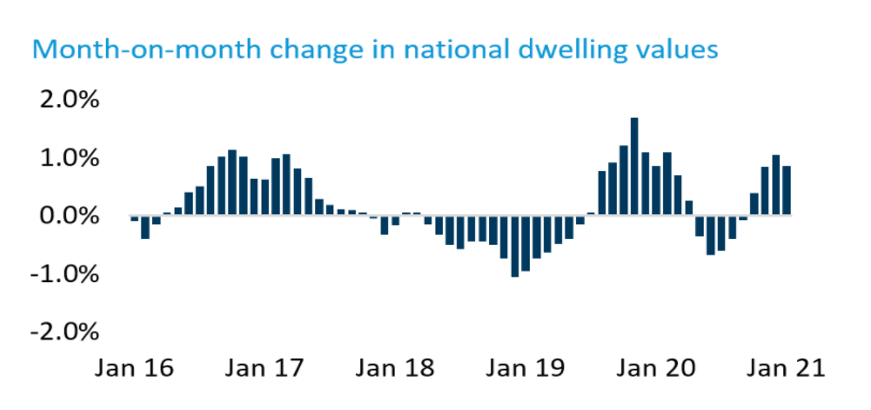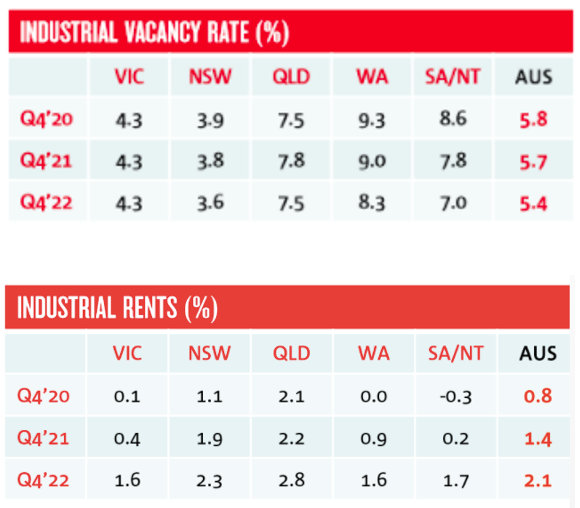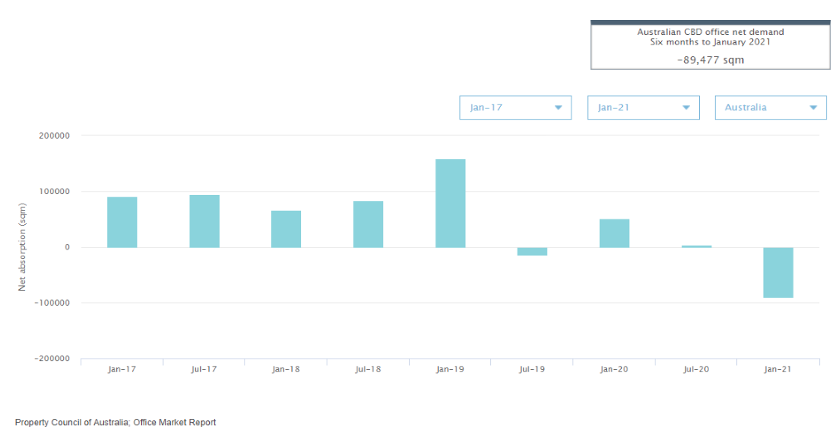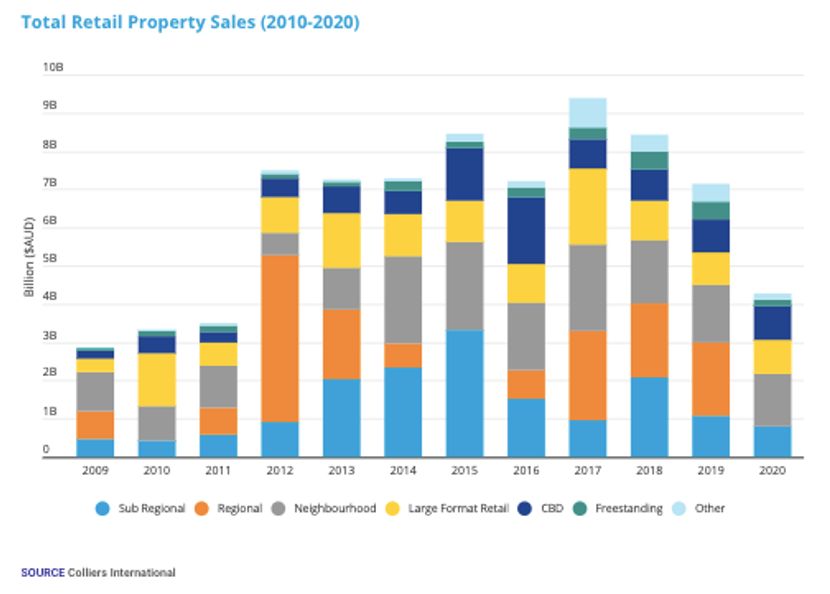

Australia is on the cusp of a property boom. That’s the forecast of experts from the big four banks through to independent analysts, so it’s little surprise our $8 trillion property market is attracting attention from investors both here and abroad.
If you’re thinking of investing in property directly or gaining exposure to the property market via a professionally managed mortgage fund, it’s important to understand the trends currently shaping the different property sectors, and how these could affect your return on investment and exposure to risk.
Macro ‘big picture’ indicators
Record-low interest rates coupled with Australia’s notably strong recovery from the recession of 2020 are supporting a positive climate for investment.
The Reserve Bank of Australia has indicated their belief is that interest rates will be held at 0.1% until at least 2024.
The 2021 interim reporting season showed that corporate Australia is returning to good health. Unemployment, while still high, is on a downward trend. Consumer and business confidence are both climbing as Australia’s vaccine rollout gathers momentum.
On the back of these positive trends, some sectors of the property market are already seeing promising results, while others continue to lag.
Residential sector outperforming the rest
Australian house prices are at record highs and appear set for a prolonged period of further growth.
Despite the impact of the pandemic, home values finished the year 3% up, and a wide range of experts are tipping an even stronger performance from the housing market for this year and beyond.
Commonwealth Bank of Australia (CBA) expects house prices to increase by 16% over the next two years, and UBS Bank says property prices could experience an “up crash” of over 10% p.a.
CBA’s head of Australian economics, Gareth Aird, predicts house prices in Sydney and Melbourne will rise by 7.5% and 7% in 2021 respectively. Those outside of the nation’s two largest cities are likely to appreciate even more rapidly.

Trilogy’s head of lending and property assets, Clinton Arentz, notes that owner-occupier demand is currently outweighing that from property investors, but this may soon change.
“Many key regional areas are performing the best they have in many years, with strong demand for house and land packages, prestige housing, as well as apartments and townhouses,’’ he said.
“An anticipated infrastructure boom influenced by increased connectivity between communities and cities, and interstate and international migration, will play a significant role in economic recovery.”
Industrial property in high demand
The e-commerce sector in Australia continues to expand rapidly, along with demand for industrial space for warehousing.
The latest NAB Commercial Property Survey, released in February, summarises the opinions of 370 property professionals including property developers, asset/fund managers, owners, investors and realtors.
They believe the national industrial sector to be the only commercial sector to deliver growth in both rents and capital values over the next two years (2.1% and 3% respectively).
As a result, leasing activity within the industrial sector is at its highest level since early 2015, according to JLL. This presents an opportunity for investors seeking competitive investments with potential for capital appreciation.

Office properties facing headwinds
Industry optimists believe the long-term future of Australia’s office sector remains bright, but the outlook for 2021/22 is less positive.
The Property Council of Australia’s Office Market Report states the national office market vacancy rate increased from 9.6% to 11.7% in the six months to January 2021 – its highest level since January 1997 – as a result of falling net demand.

The property professionals surveyed by National Australia Bank (NAB) have predicted only 3 in 4 white-collar workers will return to CBD offices “post-pandemic”. They believe office vacancies will continue to climb over the next two years, leading to falls in capital values and rents of -0.2% and -0.7% respectively.
However, many experts are hopeful about the need for workplaces now and in the future. Colliers has predicted transaction volumes in the office market to soar beyond their 2020 levels as offshore wealth looks to Australia for competitive, long-term investment opportunities.
Retail sector a tale of two tiers
While some retailers were devastated by the COVID-19 health crisis, others thrived, and the outlook for retail property as the Australian economy recovers from the pandemic is similarly diverse.
Colliers reports that 2020’s $4.26 billion in retail asset transactions was down 39% year-on-year, and was the lowest since 2011.

Colliers foresees a two-tiered retail market developing, where centres underpinned by strong non-discretionary retailers and sites with unique offerings and limited vacancy are likely to remain in high demand by investors. Many others are at risk of declining values and rental returns.
The NAB survey suggests retail property values will flatline. An oversupply, particularly in Victoria, South Australia and the Northern Territory, is likely to lead to average retail rental falls of 1.8% over the next two years.
IbisWorld’s Retail Property Operators in Australia report forecasts retail rental yields and vacancy rates to recover to pre-COVID-19 levels over the next five years. However, the rise in online shopping suggests that this recovery is likely to be uneven, requiring investor discretion in this sector.
Opportunities in residential and industrial property
Buying a building, unit or land directly is one option, however, direct property investments incur high transaction costs, are management-intensive and restrict diversification. In the case of industrial assets, direct investing is simply not possible for most smaller investors.
An alternative is investing in professionally managed mortgage funds or property trusts (also known as property funds or syndicates).
Trilogy is one of Australia’s leading property-based fund managers, managing property trusts and other financial assets on behalf of over 14,000 investors.
The Trilogy Monthly Income Trust, for example, is a pooled mortgage fund that provides finance to the residential, industrial, retail and commercial property sectors in Australia, secured by registered first mortgages.
Other investment options, such as the Trilogy Industrial Property Trust, are focused on providing opportunities for competitive investment income in addition to potential long-term capital growth.
These types of trusts provide investors with a diversified, income-focused investment that is professionally managed.
You can find out more by visiting Trilogy’s website or reading more on the Trilogy blog.
As with all investments, there are risks as well as potential rewards associated with investing in property. A licensed financial adviser can help you better understand the pros and cons of different investment types. We always recommend investors obtain, read and understand the relevant offer documents and seek advice from a licensed financial adviser before investing. This article is issued by Trilogy Funds Management Limited ACN 080 383 679 AFSL 261425 (Trilogy) as responsible entity for the Trilogy Monthly Income Trust (Trust) ARSN 121 846 722 and the Trilogy Industrial Property Trust (Trust) ARSN 623 096 944. Application for investment can only be made on the application form accompanying the Product Disclosure Statement (PDS) dated 17 December 2018 for the Trilogy Monthly Income Trust ARSN 121 846 722 and available www.trilogyfunds.com.au and when a PDS becomes available for the Trilogy Industrial Property Trust ARSN 623 096 944. The PDS contains full details of the terms and conditions of investment and should be read in full, particularly the risk section, prior to lodging any application or making a further investment. All investments, including those with Trilogy, involve risk which can lead to loss of part or all of your capital or diminished returns. Trilogy is licensed to provide only general financial product advice about its products and therefore recommends you seek personal advice on the suitability of this investment to your objectives, financial situation and needs from a licensed financial adviser. Investments with Trilogy are not bank deposits and are not government guaranteed.
This article is sponsored content. The supplier of this content has a commercial arrangement with Switzer Financial Group.